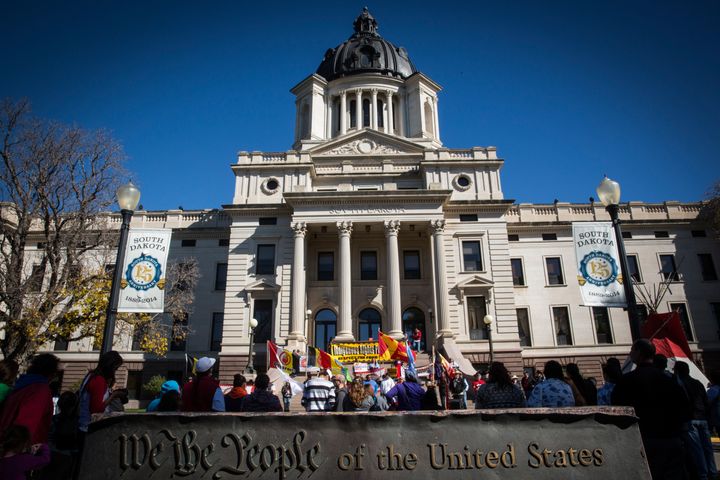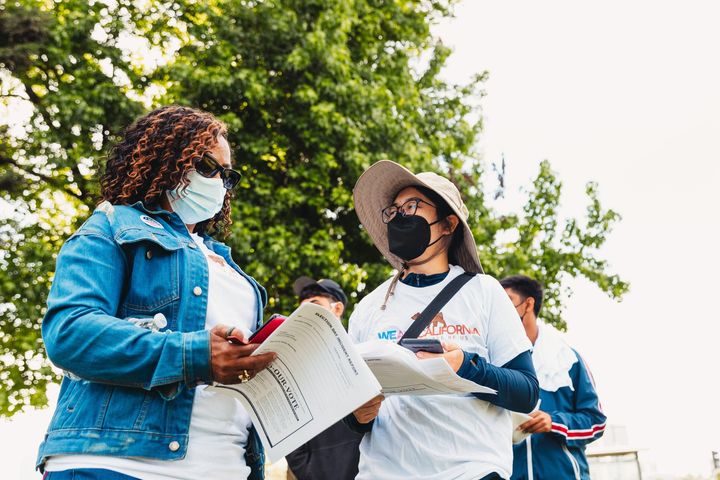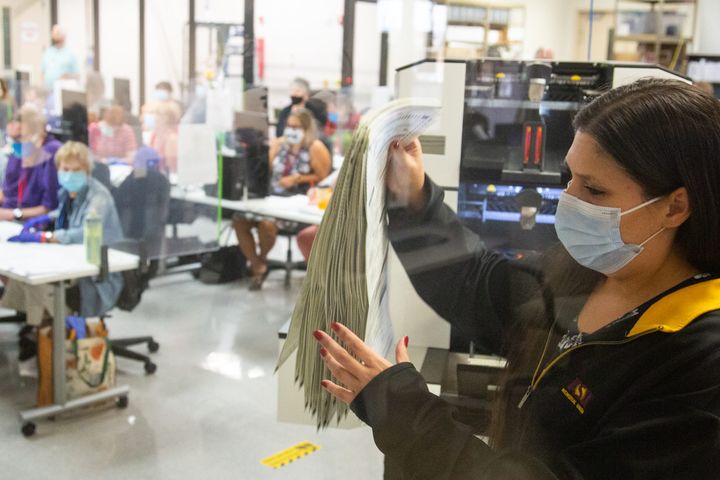When voters in South Dakota head into the polls to vote in the midterms next week, some of the biggest corporate money this election cycle will have been spent not on the slate of candidates, but on a ethics reform ballot measure. And it may also bring a strong feeling of déjà vu for voters, who passed a nearly identical measure two years ago, only to have their representatives overturn it.
Amendment W would institute a broad range of ethics and campaign finance reforms, including lowering the maximum contribution amounts state candidates can receive and barring unions and corporations from giving to campaigns. The ballot measure would also ban lobbyists from giving gifts to public officials and add a two-year revolving door ban for politicians and senior officials from acting as lobbyists in the state.
Opposition to Amendment W has come primarily from those lobbyists who would be most impacted by the changes to the state’s constitution. According to campaign finance figures reviewed by Sludge, only $6,000 of the roughly $181,000 raised by the campaign opposing Amendment W came from individuals. The rest has come from groups with registered lobbyists in the state like the South Dakota Bankers Association, which contributed $25,000, and the South Dakota Chamber, which contributed $50,650. The Koch-backed Americans for Prosperity, which also lobbies within the state, donated another $25,000 to efforts to oppose the amendment.
None of those groups responded to questions from Sludge about why they oppose Amendment W.
“With so many lobbyists lining up against Amendment W, you know it’s going to drain the swamp,” Doug Kronaizl, spokesperson for Yes on W said in a statement. “These are the special interest groups who buy significant influence and benefit the most from a corrupt system. They are threatened by Amendment W because it gives power back to the voters.”
Amendment W is based on draft legislation by RepresentUS, a national non-partisan organization devoted to passing anti-corruption and campaign finance reform laws around the country. The group often uses state ballot measure initiatives, like this one in South Dakota, to put forward its model legislation. The group proposed a similar law in the state, which was passed by voters in a 2016 referendum. That effort, known as initiated measure 22, was however quickly overturned through an emergency vote lead by the state’s Republican legislators.
The campaign supporting Amendment W has received small dollar contributions of less than $250 from hundreds of individuals, in marked contrast to the opposition campaign. But their efforts have also been backed to the tune of nearly $200,000 from RepresentUS’s national office and End Citizens United, a national organization and political action committee that supports lowering campaign contributions and corporate spending.
“The measure itself was written by South Dakotans at forums held around the state,” Kronaizl told Sludge by phone. “50,000 South Dakotans signed petitions to put it on the ballot and 180,000 of us came out and voted for it in 2016 and were rebuked in that respect.”
“The biggest dichotomy between us and the opposition is that 99% of their funding comes from organizations that are lobbying the state government in South Dakota and most of our funding comes from individuals.”
Several of those individuals though are prominent, wealthy people from outside of South Dakota—people, like Star Wars director J.J. Abrams and his wife, Katie McGrath, a former aide to Ted Kennedy, who each gave $50,000 to the Yes on W campaign. Six people from outside of South Dakota account for $150,000 of the $192,000 that the campaign has raised from individuals. The large sums of money from out-of-state donors and organizations might undercut the campaign’s messaging as being an effort to restore the power to ordinary people in South Dakota.
“I think a lot of that money has to do with the fact that the repeal of initiated measure 22 in 2016 was a national scandal and got a lot of negative national attention for South Dakota,” Kronaizl said in response to questions about major donors and out-of-state support. “But since day one the people who have been testifying, who have been going to Cracker Barrels and have been ignored by our politicians are South Dakotans.”



